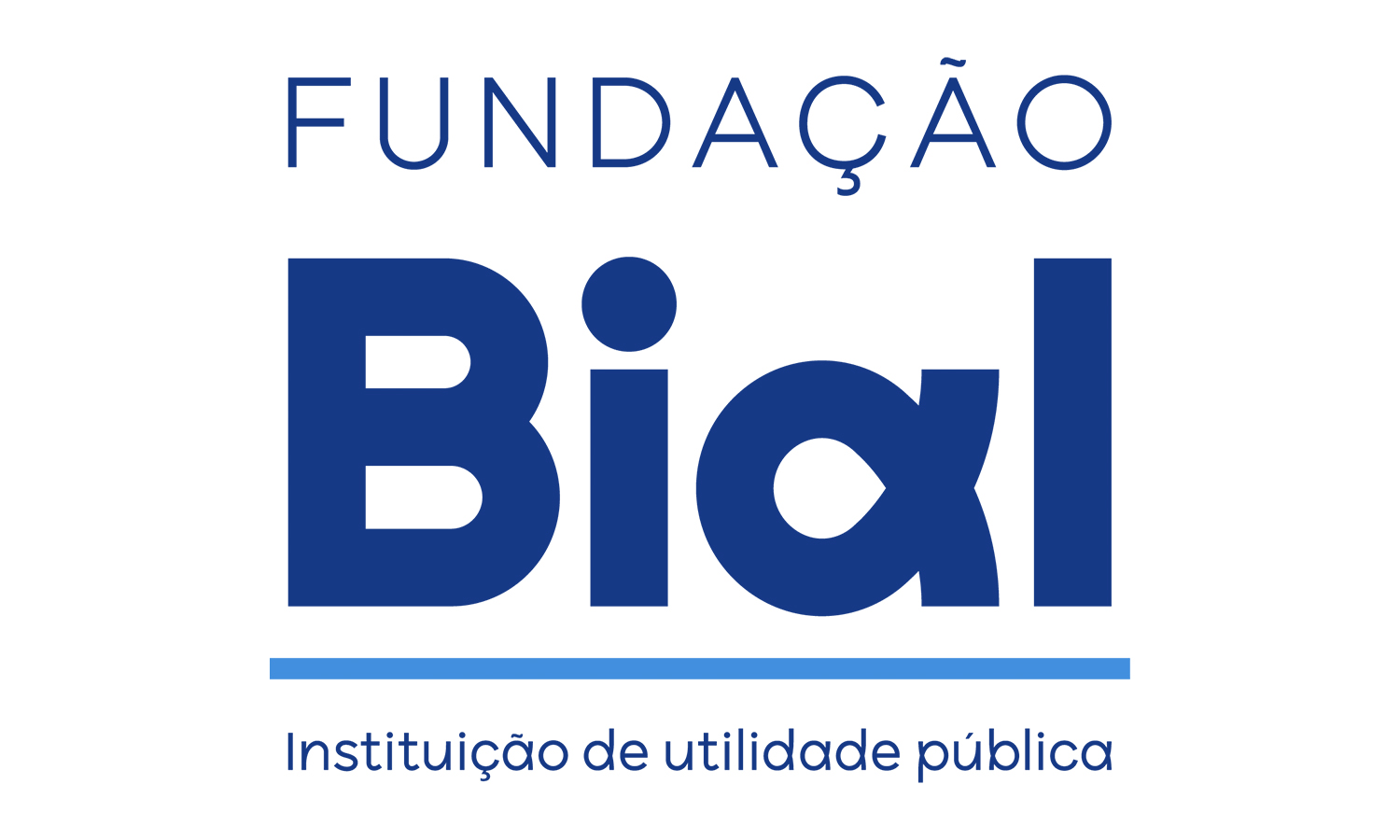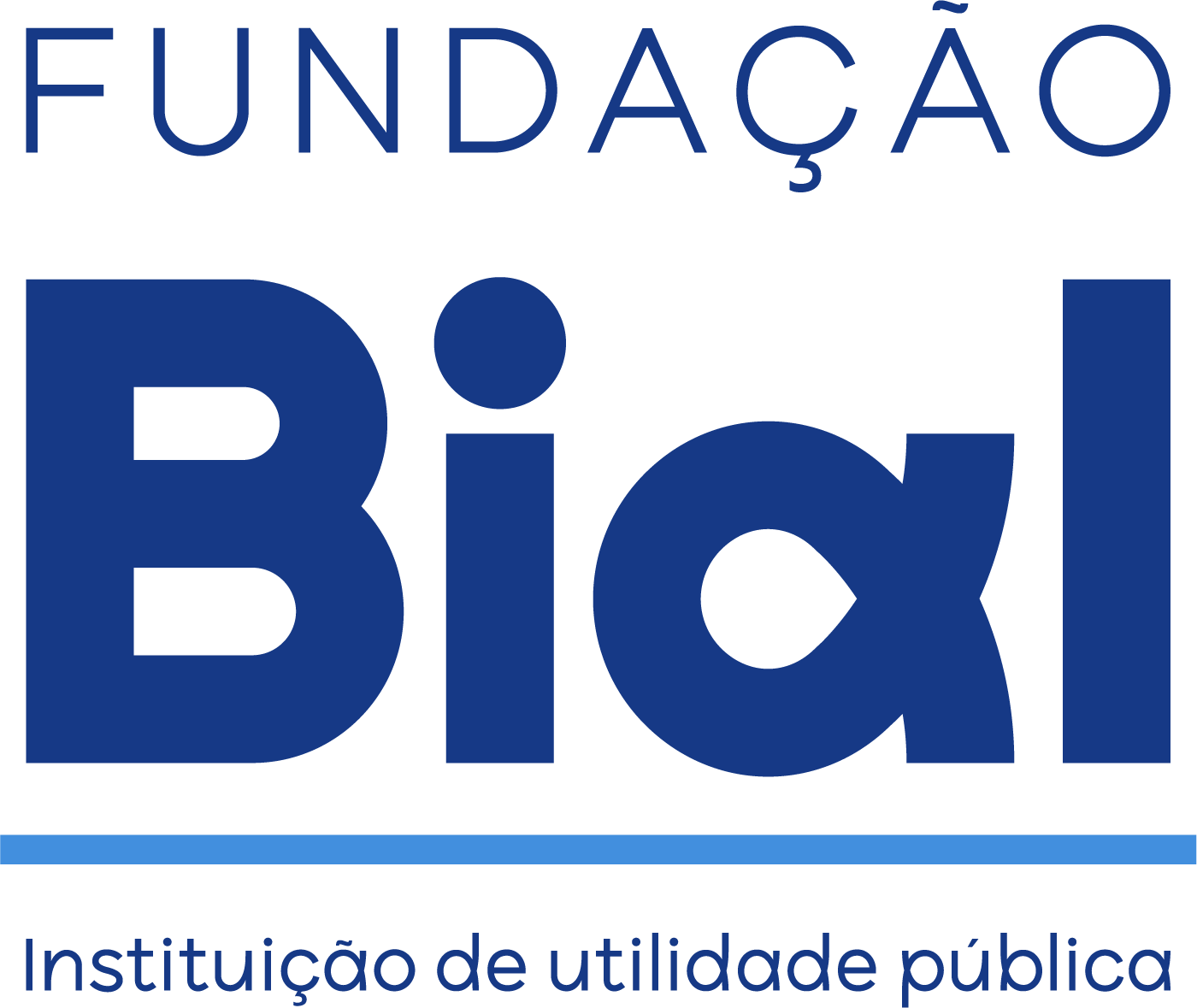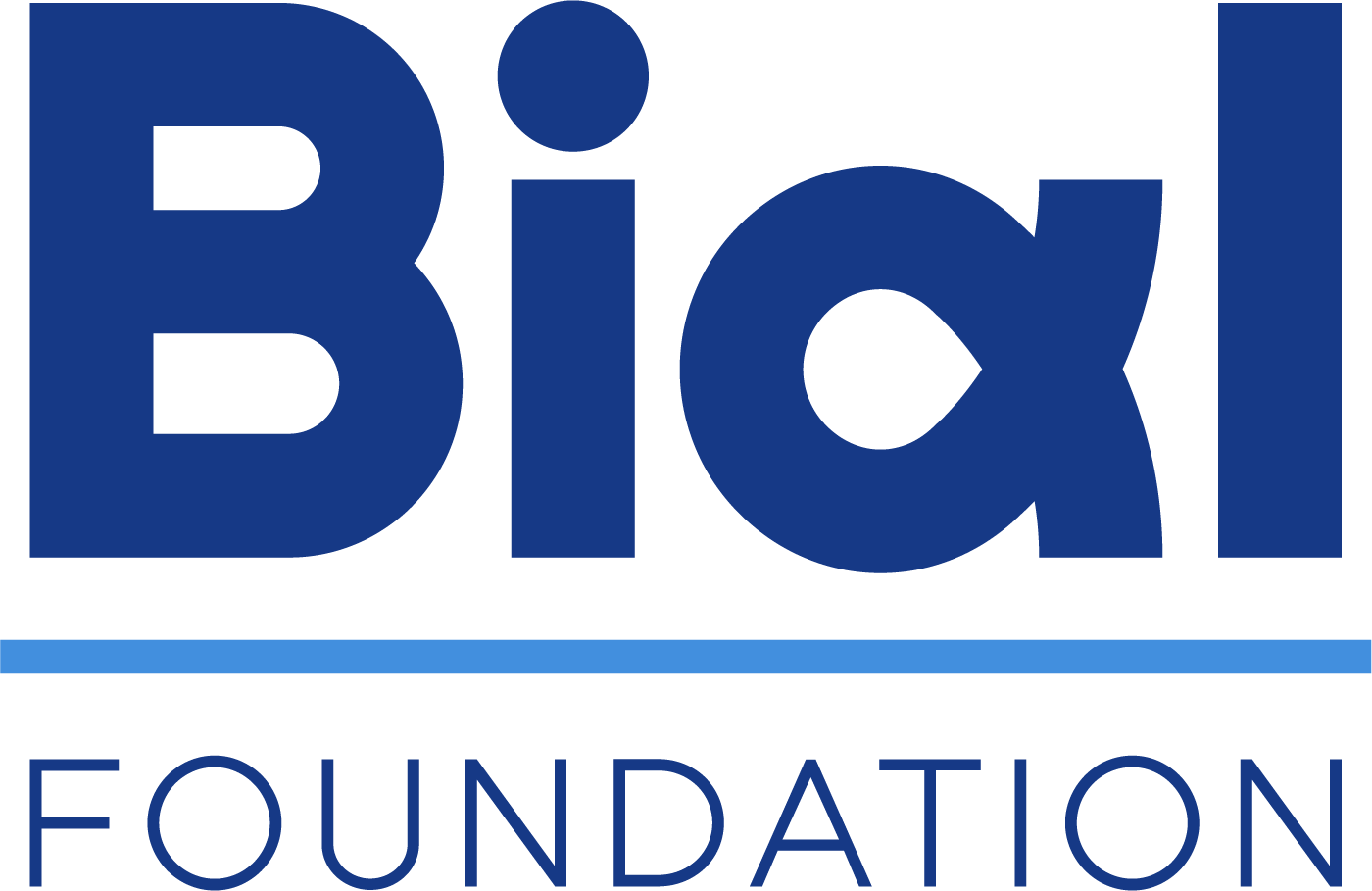Notícias
- Science Stories
- Destaques
- Looking for collaboration
- Links úteis
- Logos
Science Stories
É a concretização da nossa missão. Desde a sua criação a Fundação Bial já aprovou para financiamento 946 projetos, envolvendo cerca de 1900 investigadores de 31 países. São três décadas de apoios a Projetos de Investigação Científica orientados para o estudo neurofisiológico e mental do ser humano, nas áreas da Psicofisiologia e da Parapsicologia.Conheça as histórias por detrás da ciência.
Science Stories

Mulheres mostram maior apetência para o multitasking?
Estudo com 167 participantes do Reino Unido concluiu que as mulheres acreditam ter maior propensão para o multitasking do que os homens.

O que nos lembramos dos sonhos varia com a idade?
Estudo revela que não há diferenças relevantes entre a recordação dos sonhos em jovens adultos e em idosos.

Estudos sobre alegadas memórias de vidas passadas
Sabia que a maioria dos estudos sobre alegadas memórias de vidas passadas foram realizados sobretudo em países da Ásia?

Empatia em casais
Compreender o funcionamento adaptado dos casais é algo crucial dadas as consequências nefastas da violência conjugal.

Vai escolher o de sempre ou arriscar?
Escolhemos sempre o mesmo caminho de regresso a casa, mas um dia decidimos arriscar um percurso alternativo. O que nos leva a tomar esta decisão?

Sonhar enquanto se dorme e “sonhar acordado”: diferenças e semelhanças
Sabia que os sonhos “diurnos” refletem acontecimentos dos dois dias anteriores, enquanto os sonhos “noturnos” se assemelham a um enredo de ficção?

O seu cão tem competências sociais?
Estudo revela que a visualização do rosto do dono funciona como reforço social positivo para os cães. Conheça resultados intrigantes sobre o “melhor amigo do homem”.
News

CPF divulga trabalho da Fundação BIAL
A Fundação BIAL é destacada na campanha “Pelo Próximo, Pelo Futuro” promovida pelo Centro Português de Fundações para divulgar o trabalho que as Fundações portuguesas desenvolvem junto da sociedade.
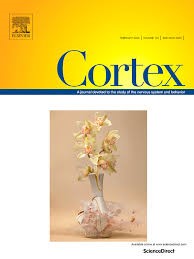
Investigadores apoiados pela Fundação BIAL publicam na revista “Cortex”
Alejandra Sel e colaboradores publicaram no âmbito do projeto de investigação 44/16 - Inducing and measuring plasticity in response control mechanisms in the human brain, apoiado pela Fundação Bial, o artigo The somatotopy of observed emotions na revista científica Cortex.

Projeto apoiado pela Fundação BIAL publicado em “Scientific Reports”
A equipa de investigação do projeto Aware Mind-Brain: Bridging insights on the mechanisms and neural substrates of human awareness and meditation, coordenado por Antonino Raffone, publicou na revista Scientific Reports um artigo sobre meditação: Common and distinct lateralised patterns of neural coupling during focused attention, open monitoring and loving kindness meditation.
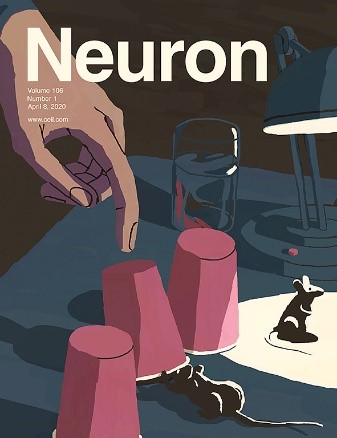
Resultados de projeto apoiado pela Fundação BIAL apresentados na revista “Neuron”
Foi publicado o artigo Postingestive Modulation of Food Seeking Depends on Vagus-Mediated Dopamine Neuron Activity na revista Neuron, no âmbito do projeto de investigação 176/10 - Dopaminergic regulation of dietary learning in humans and rodents, financiado pela Fundação BIAL e coordenado por Albino Oliveira-Maia.
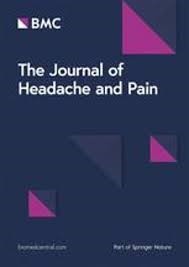
Investigadores apoiados pela Fundação BIAL publicam na revista “The Journal of Headache and Pain”
Isabel Pavão Martins e colaboradores publicaram no âmbito do projeto de investigação 63/10 - Mindful ageing. Avoiding age related cognitive decline, apoiado pela Fundação Bial, o artigo Cognitive aging in migraine sufferers is associated with more subjective complaints but similar age-related decline: a 5-year longitudinal study na revista científica The Journal of Headache and Pain.
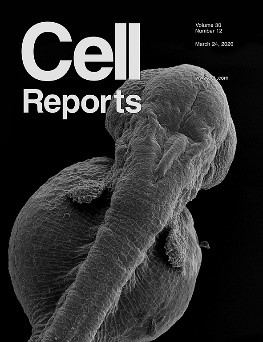
“Cell Reports” apresenta resultados de projeto apoiado pela Fundação BIAL
A equipa de investigação do projeto 253/14 - The impact of lipid signaling modulation in cognition, liderada por Tiago Gil Oliveira, publicou na revista Cell Reports um artigo intitulado Phospholipase D1 Ablation Disrupts Mouse Longitudinal Hippocampal Axis Organization and Functioning.

Projeto apoiado pela Fundação BIAL é publicado na revista “Scientific Reports” (2)
Carlo Miniussi publicou no âmbito do projeto de investigação 51/16 - Cognitive plasticity: Modulation and monitoring through a neurophysiological approach, apoiado pela Fundação BIAL, o artigo Effects of different transcranial direct current stimulation protocols on visuo-spatial contextual learning formation: evidence of homeostatic regulatory mechanisms na revista Scientific Reports.
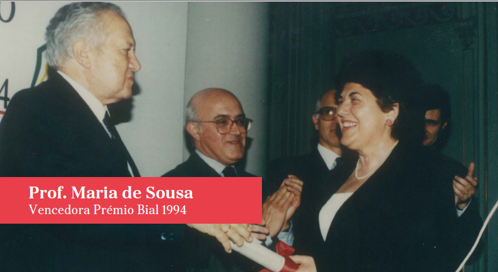
Prof. Maria de Sousa
A Fundação BIAL manifesta profundo pesar pela passagem da Prof. Maria de Sousa, uma figura ímpar da ciência a nível mundial, que marcou de forma incontornável o desenvolvimento científico e académico em Portugal.
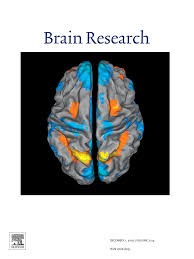
Artigo publicado na revista “Brain Research”
João Filipe Oliveira e equipa, no âmbito de dois projetos de investigação apoiados pela Fundação BIAL, designadamente, “207/14 - The role of astrocytes in complex cognitive processing” e “37/18 - Decoding the neuron-astrocyte dialogue that supports cognitive processing”, publicaram o artigo de revisão Astrocyte signaling impacts the effects of human bone marrow mesenchymal stem cells secretome application into the hippocampus: A proliferation and morphometrical analysis on astrocytic cell populations na revista Brain Research.
Looking for collaboration

The quest of physiological markers for the experience of pain
Researcher: Elia Valentini - Department of Psychology & Centre for Brain Science, University of Essex Summary: The aim of this project is to improve measurement of the human experience of pain by investigating a combination of psychophysical and physiological responses during mild noxious stimulation. More specifically, we want to investigate how sensitive and specific to pain the brain oscillatory responses are. We use EEG as the main technique, but we are keen to collaborate with neuroscientists using fMRI, autonomic measures and brain stimulation as well as with computational neuroscientists. A clinical collaborator would also be very much welcome.

EEG investigation of hypnosis and decision-making
Researcher: Rinaldo Livio Perri - University Niccolò Cusano Rome, Italy Summary: I work in the field of hypnosis and cognitive neuroscience. In particular, I adopt the event-related potentials (ERPs) to investigate the effect of the hypnotic suggestions on sensory processing and cognitive performance. I am an expert in decision-making and proactive brain processes before the stimulus administration (e.g., the perceptual, prefrontal and premotor readiness during the expectancy stage). I could help colleagues to properly analyze the ERP signal in the pre-stimulus stage of processing. Also, I would be happy to share my EEG data for re-analyzing them in the frequency domain (e.g., wavelet or coherence analysis in the hypnosis research). Feel free to contact me for any question! More information on my papers: https://scholar.google.it/citations?user=-8e_V64AAAAJ&hl=it Possible collaborations: neuroscientist with experience in the EEG frequency analysis Email: perri.rinaldo@gmail.com

Transparent Psi Project - looking for collaborators
Summary: We are running a fully transparent, expert consensus-base multilab replication of Bem’s (2011) experiment 1. The project features state of the art methods to maximize transparency and study integrity. The study involves a computerized experiment taking about 20 minutes per session. Group testing is possible in a computer lab, no specialized equipment needed. Labs are expected to recruit at least 100 participants. Participants will be exposed to images with explicit erotic/sexual content in the experiment. No financial compensation is required for the participants. Data collection is expected to take place in the 2020 fall semester. Every material is provided for ethics/IRB submissions and data collection in English (translation of materials might be necessary by the collaborators). The study is pre-registered and the manuscript is accepted in principle for publication in the journal Royal Society Open Science. All collaborators who meet the minimum sample size criterion will get authorship on this paper reporting the results of the replication study. More information in the preprint: https://psyarxiv.com/uwk7y/ Indicate interest in the collaboration via the following form: https://tinyurl.com/tpp-labs With any question contact the lead investigator: Dr. Zoltan Kekecs, kekecs.zoltan@gmail.com

Cognitive control and learning
Researcher: Ignacio Obeso, Ph.D. / CINAC - HM Puerta del Sur Summary: The aim of our projects is to understand the behavioral and neural mechanisms used to learn how humans establish adaptive behaviour in changing contexts. More specifically, we want to decipher how stopping abilities are initially learned and later executed under automatic control. We use task-related fMRI, brain stimulation and clinical models to test our predictions in laboratory settings as well as online home-based paradigms. Possible collaborations: computational scientist Email contact: i.obesomartin@gmail.com https://iobesomartin.wixsite.com/cognitivecontrol
Veja aqui links de Fundações, Organizações, Sociedades e outros que lhe podem interessar.
- BrainFacts.org
- Cognitive Neuroscience Society
- Dana Foundation
- European Brain Council
- European Society for Cognitive and Affective Neuroscience (ESCAN)
- Federation of European Neuroscience Societies (FENS)
- Human Brain Project
- IANDS International Association for Near-Death Studies
- Institut Métapsychique International (IMI)
- Instituto de Psicologia Paranormal
- International Behavioral Neuroscience Society (IBNS)
- International Brain Research Organization
- IONS Institute of Noetic Sciences
- Kavli Foundation
- Koestler Parapsychology Unit
- Open Sciences
- Organization for Human Brain Mapping (OHBM)
- Parapsychological Association
- Psi Encyclopedia
- Rhine Research Center
- Sociedade Portuguesa de Neurociências
- Sociedade Portuguesa de Neurologia
- Society for Neuroscience
- Society for Psychical Research
- Society for Scientific Exploration (SSE)
- World Federation of Neurology

